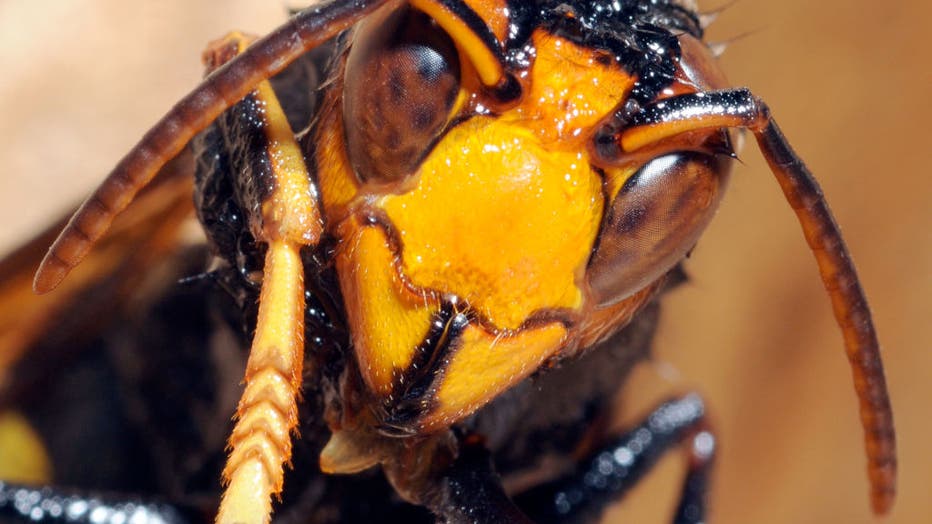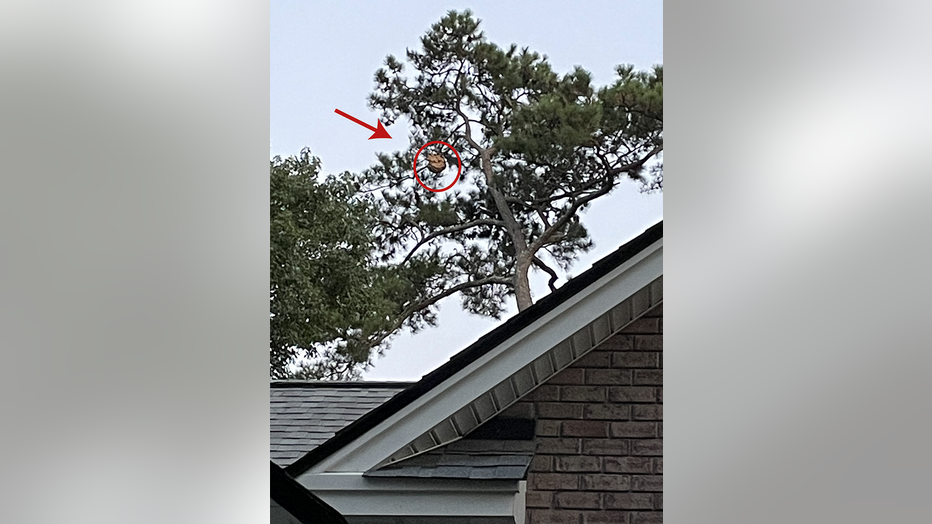Invasive hornet nest found, eradicated in Georgia, crews searching for more
Invasive hornet nest found, eradicated in Georgia
Georgia officials believe they have eradicated the invasive yellow-legged hornet species which was spotted by a beekeeper in Savannah earlier this month.
SAVANNAH, Ga. - Georgia agriculture officials say they've found and destroyed a nest of an invasive species of hornets that was spotted for the first time in the United States this month.
Friday, Agriculture Commissioner Tyler Harper said that the nest was discovered on Aug. 18. After its discovery, Department of Agriculture scientists began working immediately to eradicate it.
Harper says the nest was discovered in a farm close to the area where the species was originally sighted more than two weeks ago in Savannah. The nest was around 85 feet off the ground in a tree.
"This is a huge win for Georgia agriculture and a big win for citizens in this state," Harper said.
Crews are now working to make sure that this was the only nest in the area and that the species has been eliminated.
Officials are asking Georgians to report any sightings of the insect to the Georgia Department of Agriculture at one of its offices or by using the agency's online form.

(Photo by Herve MASCOT/Gamma-Rapho via Getty Images)
First sighting of yellow-legged hornets in United States.
In August, a beekeeper in Savannah spotted an unusual hornet on their property and contacted the Georgia Department of Agriculture. Agents found two of the hornets at the same location.
After working with the University of Georgia and USDA, officials confirmed that the insect was a yellow-legged hornet on Aug. 9.
Officials say they have since found four confirmed sightings of the hornet on four different properties around the area.
Harper said that the hornet can be dangerous to humans and poses a "significant threat to Georgia agriculture."
The agency is working on a plan to "track, trap, and eradicate" all known traces of the insect so that it can't settle down in Georgia.

The site of the nest found near Savannah (Georgia Department of Natural Resources)
What is the yellow-legged hornet?
A native to subtropical southeast Asia, the yellow-legged hornet has been found in most of Europe and the Middle East.
The insects usually construct their egg-shaped paper nests in trees. As time goes by, the nests can grow large enough to house an average of 6,000 workers.
Dr. Keith Delaplane, a honeybee specialist at the University of Georgia College of Agriculture & Environmental Sciences, said the species is of the utmost concern for beekeepers.
Delaplane called the insect a "voracious predator" that can depopulate an aviary in a matter of days.
Invasive hornet species hits Georgia
An invasive hornet species has been spotted in America for the very first time right here in Georgia. It's called a Yellow Legged Hornet and it was seen by a beekeeper in Savannah. Experts say these hornets feed on a variety of insects, including honeybees.
The yellow-legged hornet's primary source of food is honeybees and other pollinators - giving it the name the "bee hawk."
While the hornet is most dangerous to Georgia's bee population and agricultural sector, it can be dangerous to humans. China recorded 54 deaths from the hornets over the course of two years.
Officials do not know how the hornets got to Georgia.

